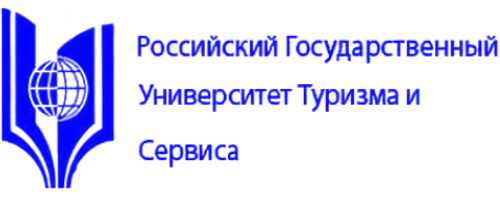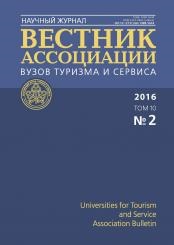The article examines the transformation of the model «homo economicus», which underlies the modern science of service. This model is considered as a theoretical design that allows explaining the nature of human needs. The Foundation model was the concept of classical political economy, represented in the works of A. Smith and D. Ricardo. There are also the disadvantages of this model applied to the study of contemporary culture and the needs of modern man. The author focuses on the concept of personality in modern psychological science, which can be defined as a multi-potential person or a man-scanner. In this regard, the author resorts to the concept of a man-scanner in the works of famous American coach-trainer B. Sher. The author studies the prospects of us- ing this model in modern culture, and also with regard to the typology of needs according to Maslow. It’s shown the relationship of this model with the needs of modern man and his value orientations. On the basis of it there are selected methodological recommendations for teaching of science of service at the University. In particular, there are noticed problematic topics in the teaching of modern science of service, and also shown the methodi- cal part – conduct lectures with students on the topic «Practical aspects of service.» It includes the purpose and objectives of lectures, educational technology, and questions for discussion. As necessary components of learning the science of service the author identifies practical orientation, as well as the existential needs of man in different situations. In this regard, the attention is paid not so much to economic as to philosophical component of the discipline «science of service».
science of service, education, needs, man, consumer, behavior, culture, economic philosophy, economic sociology
1. Smith A., An inquiry into the nature and causes of the wealth of nations. (In Russ) Available at: http://www.gumer.info/ bibliotek_Buks/Econom/smit.
2. Ricardo D. On the Principles of Political Economy and Taxation. Moscow: Eksmo, 2016. (In Russ).
3. Votchel’ L.M., Vikulina V.V., Theoretical concept of the concept «economic rights». Jekonomika i politika, 2014, no. 1 (2), pp. 58-63. (In Russ).
4. Bowles S., The Moral Economy: Why Good Incentives are No Substitute for Good Citizens. Yale University Press, 2014.
5. Lukshi P., Atlas novyh professij (Atlas of new professions). Moscow: Agentstvo strategicheskih iniciativ, 2015.
6. Sher B., Refuse to choose! Use All of Your Interests, Passions, and Hobbies to Create the Life and Career of Your Dreams. Moscow: 2015. (In Russ).
7. Sher B., Thinking Through Refuse to Choose: 101 things every Scanner should know. New York: Genius Press Unlimited, 2013.
8. Markova A.K., Matis T.A., Orlov A.B., Formirovanie motivacii uchenija. Kn. dlja uchitelja (Formation of learning motiva- tion. Teachers’ book). Moscow: Prosveshhenie, 1990. (In Russ).
9. Mitin A.N., Osnovy pedagogicheskoj psihologii vysshej shkoly: uchebnoe posobie (Basics of pedagogical psychology of the higher school: tutorial). Moscow: Prospek, 2016. (In Russ).
10. Orlov Ju.M., Ozdoravlivajushhee myshlenie. Izd. 2-e ispr (Healthful thinking. 2nd Ed.). Moscow: Slajding, 2006. (In Russ).
11. Benedict Р. The Chrysanthemum and the Sword: Patterns of Japanese Culture. Moscow: «Rossijskaja politicheskaja jen- ciklopedija» (ROSSPJeN), 2004. (In Russ).
12. Berne E., Games People Play: the Psychology of Human Relations. Moscow: Eksmo, 2015. (In Russ).
13. Mead M., Culture and the world of childhood. Moscow: Nauka, 1988. (In Russ).
14. Freud S. Civilization and Its Discontents. Moscow: Renessans, 1992. (In Russ).
15. Shipovskaja L.P., Needs are the Functional Quality of Life. Vestnik Assotsiatsii vuzov turizma i servisa, 2008, no. 2, pp. 77-81. (In Russ).





